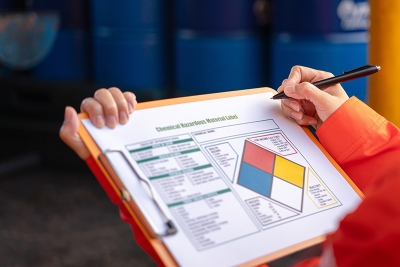
The Role of Waste Audits in improving Your Business's Sustainability

(Posted on 09/08/25)
A waste audit is a detailed analysis of a business's waste streams, identifying the types, quantities, and sources of waste produced over a specific period. This process is a foundational step for improving sustainability, as it provides the data needed to create an effective waste management strategy. By understanding what they're throwing away, businesses can implement targeted improvements that reduce their environmental impact and often lead to significant cost savings.
What is a Waste Audit?
A waste audit involves a systematic review of a business's waste management processes. It goes beyond simply looking in the bins; it's a hands-on process that often involves physically sorting and weighing a sample of waste to get a clear picture of its composition.
The main goals of a waste audit are to determine:
- What types of waste are being produced (e.g., cardboard, plastic, food, electronics).
- Where the waste is being generated within the business (e.g., offices, production line, kitchen).
- How much waste is being produced for each category.
This data provides a baseline to measure future improvements against.
How Waste Audits Improve Sustainability
Waste audits are crucial for a business's sustainability efforts because they provide the insights needed to follow the waste hierarchy: reduce, reuse, recycle, and recover before disposal.
- Reducing Waste at the Source: An audit can reveal inefficiencies in a business's operations. For example, it might show a high volume of packaging waste from a specific supplier, prompting the business to seek a new partner with more sustainable packaging. By identifying the root cause of waste, businesses can implement preventative measures and reduce waste before it even happens.
- Increasing Recycling and Reuse: The audit often uncovers recyclable materials mixed in with general waste. This highlights an opportunity to improve segregation and recycling programs. By educating employees and providing proper bins, a business can significantly increase its recycling rates. It may also reveal opportunities to reuse materials, such as shredding old paper for packaging or donating unused equipment.
- Optimizing Disposal Methods: The data from a waste audit helps a business ensure its waste is being disposed of correctly and sustainably. It might reveal that a significant amount of food waste is being sent to landfill when it could be composted or sent for anaerobic digestion. This not only reduces the business's carbon footprint but also ensures compliance with regulations like the "Simpler Recycling" rules in England.
- Promoting a Culture of Sustainability: The process of conducting an audit and sharing its findings can raise employee awareness about waste and its impact. When staff see the results firsthand, they're more likely to participate in waste reduction efforts and adopt more sustainable habits, fostering a company-wide commitment to environmental responsibility.
In the UK, waste audits can also help businesses ensure they're complying with the "duty of care" regulations, which require them to manage their waste responsibly. By identifying and correctly classifying waste, particularly hazardous waste, a business can avoid potential fines and legal issues.

 Like us on Facebook
Like us on Facebook Follow us on Twitter
Follow us on Twitter Find us on LinkedIn
Find us on LinkedIn